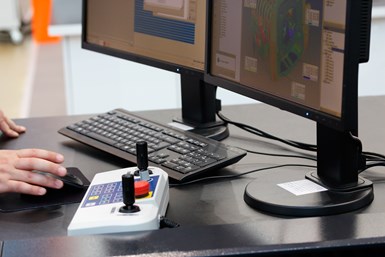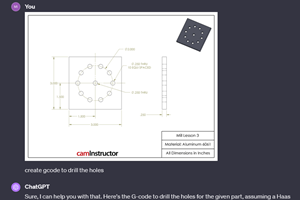What Sandvik's Mastercam Acquisition Means For Users
While Sandvik says it plans to give recent acquisition Mastercam independence and keep its software platform-agnostic, the company also plans to leverage its new reach into the small to medium manufacturers to cross-sell tools.
Share






In July and August 2021, Sandvik acquired three different companies: metrology and automation providers DWFritz Automation, end-to-end CAD/CAM software developer Cambrio and Mastercam developer CNC Software. The former two already added significant new capabilities to Sandvik’s offerings, but the last acquisition marks a clear leap from Sandvik into the CAM market. What does this mean for the future of the company, or for Mastercam users, who make up the largest install base in the CAM market? Sandvik CEO Stefan Widing, CFO Tomas Eliasson and design and planning automation president Mathias Johansson addressed these questions in a recent conference call to investors.
Why Acquire Mastercam?
Sandvik leaders say the company’s mission in purchasing Mastercam is to continue automating the manufacturing chain for small to medium enterprises (SMEs) and to deliver competitive point solutions for large OEMs. The company plans to deliver open and agnostic products to simplify integration with its new subsidiaries’ existing installed bases, and hopes to generate recurring revenues through strong offerings in CAM, design for manufacturability and production logistics.
Access to CNC Software’s CAM software and customer base (particularly the SMEs) was particularly appealing to Sandvik, as it views CAM as a centerpiece in data capture. Sandvik also believes this acquisition puts it in a unique market position, with its existing stockpile of tool and cutter data creating additional value for Mastercam. The company plans to leverage both the newly obtained customer base and its tool data to cross-sell tools.
What Stays the Same?
Sandvik says it believes Mastercam and Cambrio will compliment each other, emphasizing Cambrio for molding and Mastercam for more general machining. This plan for software with different specialties mirrors the relationship Sandvik plans for the two brands to have with fellow subsidiary CGTech’s verification software.
The Mastercam team will stay relatively independent, with the parent company saying it will not mandate any particular changes to business. Sandvik executives did mention their belief that collaboration between Mastercam and other subsidiaries will arise where the companies themselves believe they can collaborate. Sandvik will also encourage knowledge sharing, and plans for both R&D resources and efficiency gains to be shared across companies.
Sandvik believes this collaborative push between its subsidiaries will improve applied machining strategies, benefiting customers. The company further plans to integrate additive and subtractive manufacturing expertise under its umbrella, developing a common “manufacturing centric” platform.
By bringing together expertise from different organization, Sandvik leaders believe the company will create new automated processes for customers, improve customer intimacy and open up opportunities for new sales models.
Why Use a United Ecosystem?
Sandvik’s executives say they believe positive, added value between brands under the same umbrella appeals to shops wanting a smoother, faster platform. Sandvik’s subsidiaries will continue to be platform-agnostic and collaborate with competitors — one executive going so far as say doing otherwise would anger customers and prove a surefire way to lose market share — but the additional speed and smoothness from using multiple pieces of software under the Sandvik umbrella will be the major selling point of its united ecosystem.
Related Content
How this Job Shop Grew Capacity Without Expanding Footprint
This shop relies on digital solutions to grow their manufacturing business. With this approach, W.A. Pfeiffer has achieved seamless end-to-end connectivity, shorter lead times and increased throughput.
Read MoreThe Power of Practical Demonstrations and Projects
Practical work has served Bridgerland Technical College both in preparing its current students for manufacturing jobs and in appealing to new generations of potential machinists.
Read MoreCan ChatGPT Create Usable G-Code Programs?
Since its debut in late 2022, ChatGPT has been used in many situations, from writing stories to writing code, including G-code. But is it useful to shops? We asked a CAM expert for his thoughts.
Read More4 Commonly Misapplied CNC Features
Misapplication of these important CNC features will result in wasted time, wasted or duplicated effort and/or wasted material.
Read MoreRead Next
5 Rules of Thumb for Buying CNC Machine Tools
Use these tips to carefully plan your machine tool purchases and to avoid regretting your decision later.
Read MoreSetting Up the Building Blocks for a Digital Factory
Woodward Inc. spent over a year developing an API to connect machines to its digital factory. Caron Engineering’s MiConnect has cut most of this process while also granting the shop greater access to machine information.
Read MoreBuilding Out a Foundation for Student Machinists
Autodesk and Haas have teamed up to produce an introductory course for students that covers the basics of CAD, CAM and CNC while providing them with a portfolio part.
Read More





















.jpg;maxWidth=300;quality=90)








